'Crossing the Channel by boat is risky - we came by lorry'
- Published
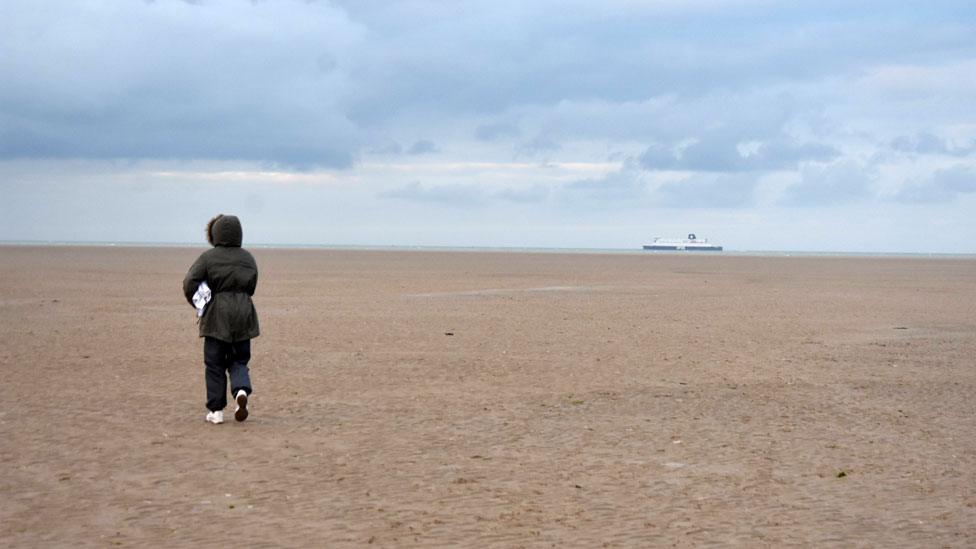
Azis Hanna, from Iraq, was about to pay smugglers to get his family across the English Channel in an inflatable boat. But when his friends nearly died he thought again, says the BBC's Sue Mitchell.
Azis Hanna, his wife Maryam, and their five-year-old daughter, Chia, arrived in Dunkirk in October and made more than 20 attempts to reach the UK before finally succeeding last weekend, in the back of a lorry.
For a while he had considered making the trip in an inflatable rubber boat. The smugglers made it sound quite safe, promising that one of them would travel in the boat with the migrants for 14 miles.
"When you go to English water they then call the police, the police come to help take you to England. Every smuggler says like this," Azis says.
At this point the smugglers themselves would travel back to France in an accompanying boat, the story went.
But the experiences of two friends from the Dunkirk camp filled Azis with horror.
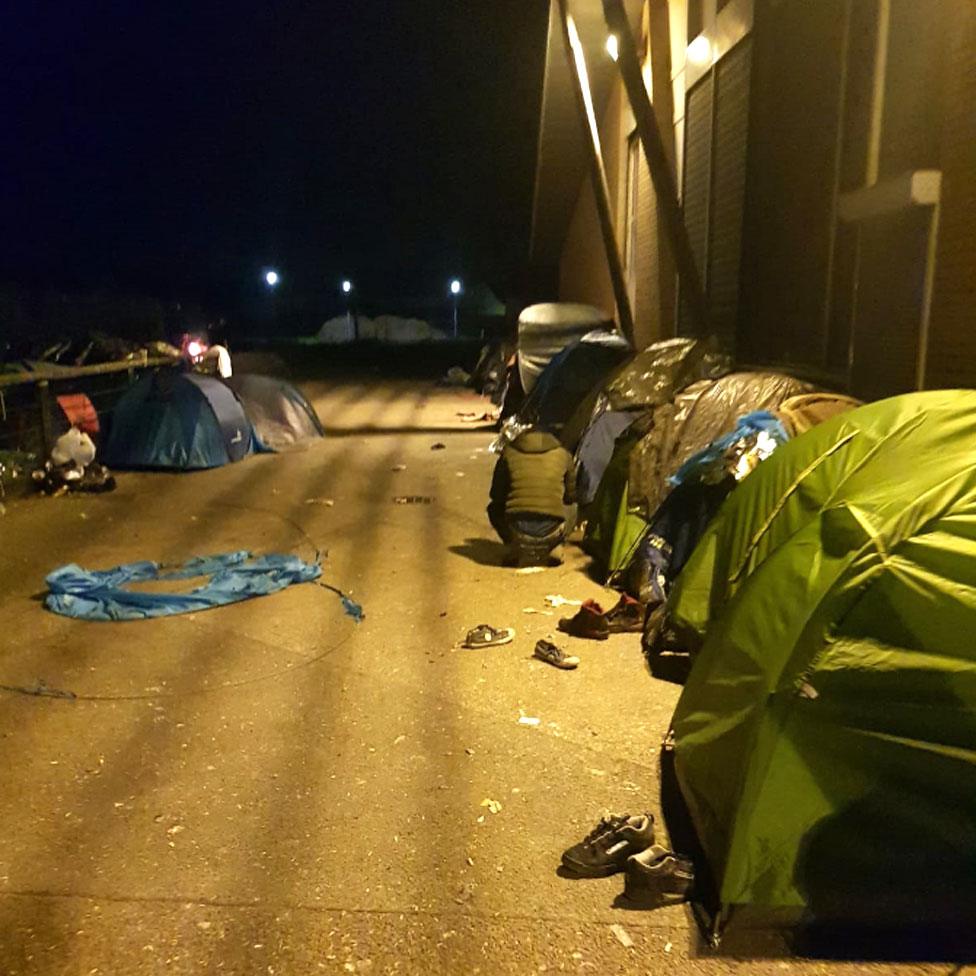

Iranian Christians Bahador and Shoku, together with their children Maryam and Brinyamin, were driven to a beach south of the ferry port one winter morning and climbed into a small boat with six others.
About 15 minutes after setting off, it capsized - and there were no life jackets. Seven-year-old Maryam says she was one of the only ones who could swim.
"This water was so cold, so much cold. My feet were going cold, it made me want to die," she says. "I saw my brother, but couldn't get him."
Fortunately Bahador was able to lift them on top of the upturned boat.

Find out more
Listen to Dangerous Crossings on Radio 4 at 11:00 on Wednesday 20 February

"The sea was going up and down so much," Maryam says. "It was strong and dark. My mum was crying and praying and others were shouting for help. They said we were going to die."
Eventually they were rescued but both children had to be treated in hospital for hypothermia.

Bahador and his children, Brinyamin and Maryam

The other story that put Azis off the boat crossing involved his friend Solomon, and Solomon's partner, Siree, both also Iranian Christians.
They had already been at sea for hours when their engine failed. As efforts were made to restart it, the boat began to fill with a mixture of salt water and fuel - which burned their skin.
"Our skin was burning, just so painful. We were just scared. Somebody was crying, someone was praying. The boat was drifting," Solomon says.
"We were asking God, 'Why, what is happening to us? Why?' Me too, I ask God, 'Why God you take me from Iran to this sea to die here? Nobody knows where I am.' Three hours after our engine went off we were still at sea."
It was dark when a small boat - British, Solomon thinks - picked them up and transferred them to a French vessel, and they were taken to a hospital in France.
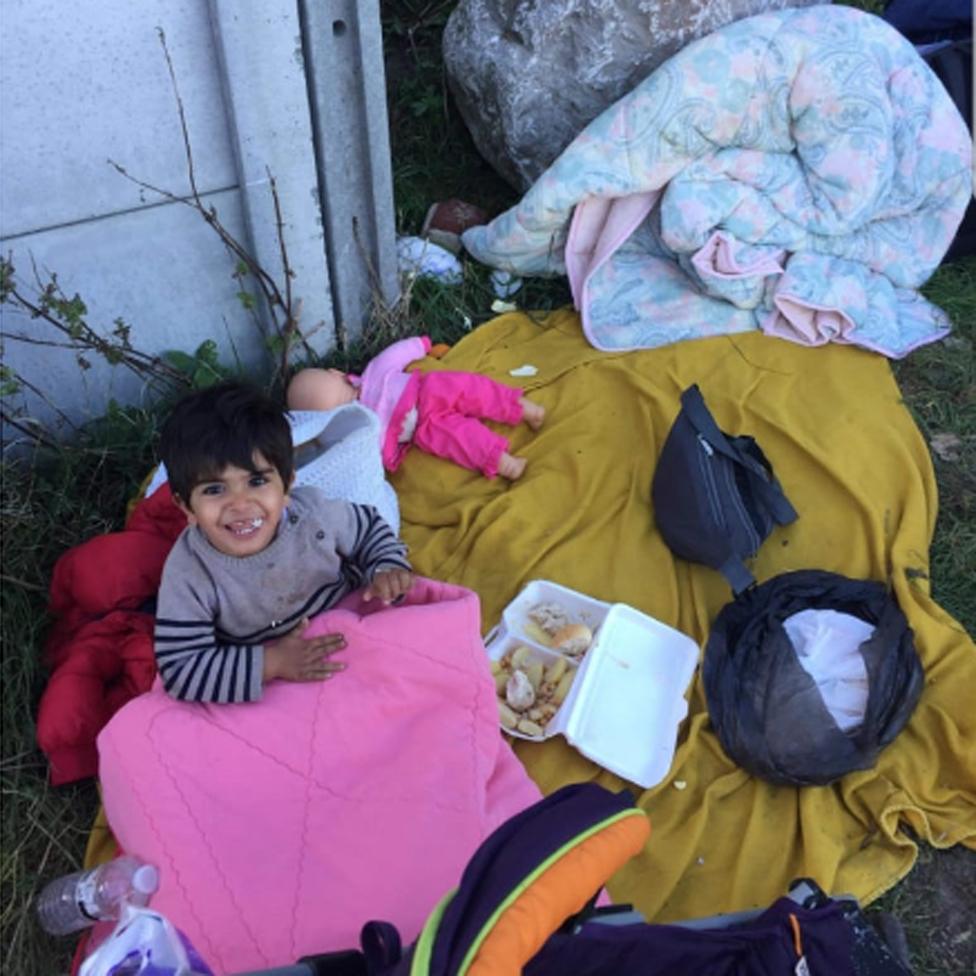
Bahador's son, Brinyamin, at the camp in Dunkirk
After hearing these stories, Azis told smugglers in Dunkirk that he wanted to make the journey by lorry. His mother borrowed £10,000, using her house as security, and paid the money to the smugglers' associates in Iraq. Then a long series of failed attempts began.
Sometimes they were found by sniffer dogs at the French ports. On other occasions, the lorries set off in the wrong direction, heading into France towards Spain or Romania. On one occasion they climbed into a refrigerated lorry, but Chia could not stand the cold and started feeling unwell.
Azis says the French police took a relaxed attitude if they caught him, often wishing him better luck next time.
His successful crossing took place on Saturday. They were called by the smugglers during the day and travelled by bus from Dunkirk to a lorry park in Belgium. There they were put in the back of a Romanian lorry with another family and entered the UK via the Eurotunnel. They stayed hidden until Northampton, when they created a disturbance and the surprised driver let them out.

Tackling smugglers
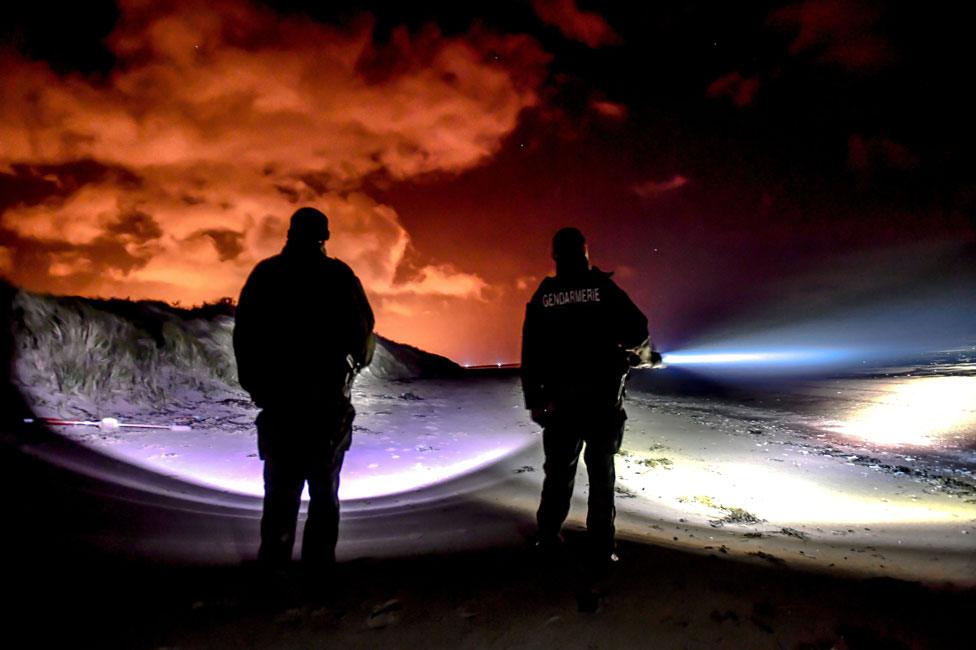
DCI Neil Cripps of the South East Regional Organised Crime Unit says investigators sometimes have to allow unsafe boats to set off in order to gather evidence against the smugglers.
"To get our best evidence and to do a long-term permanent disruption to this crime route, we have to balance and juggle an element of risk to people."
An Iraqi Kurd smuggler operating in northern France, using the name Johno, says he spent four years in jail for human trafficking - then returned to the illegal business after his release.

They hid in woods until one of Azis's cousins, who is already living in the UK, could pick them up. Hours later, Azis reported to a police station to start his claim for asylum.
Azis says life in Iraq had become dangerous for him because of an earlier attempt to reach the UK as a teenager, 15 years ago. On that occasion his travelling companion had died, as he jumped from a slowly moving lorry. Years later the man's uncle contacted Azis out of the blue, blaming him for the tragedy, he says, and threatening to kill his daughter if he failed to pay £50,000 in compensation.
Azis did not think of staying in France, because he speaks English, has relatives in the UK, and because the UK government helps refugees, he says. "They give houses and everything," he says. "In France it isn't like that. They do help, but nothing like that."
He adds: "I am overjoyed and thank God for this. England is like heaven to me. No-one can hurt us here and we can sleep properly for the first time in months. My daughter can start school and get an education. She will be very clever and maybe even a doctor."
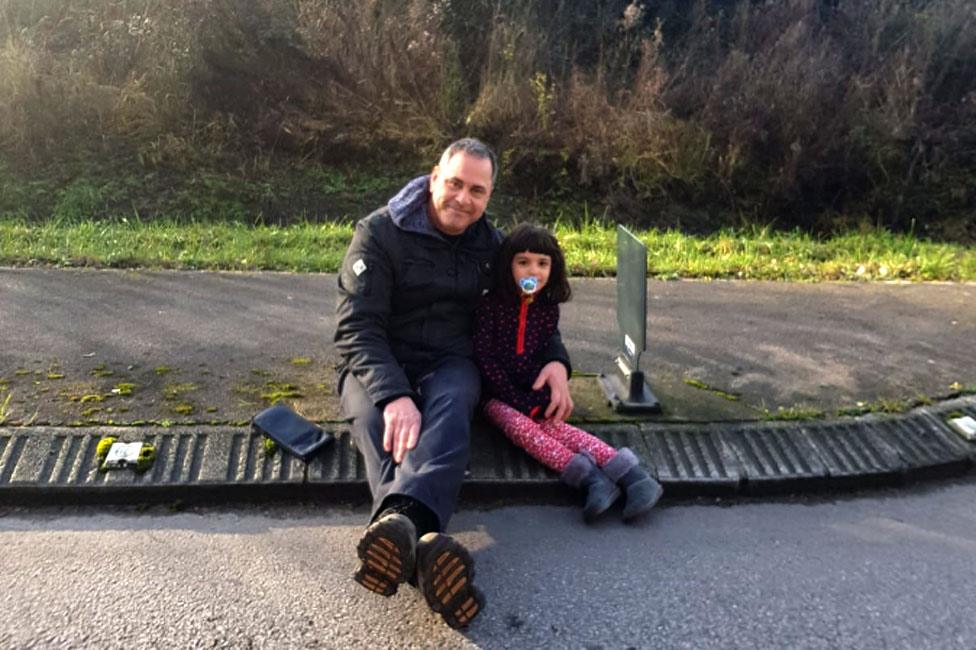
British volunteer Rob Lawrie with Azis's daughter, Chia, in Dunkirk
DCI Neil Cripps of the South East Regional Organised Crime Unit says increased vigilance at ferry ports, and the increased risk of getting caught when travelling by lorry, is making sea crossings more attractive for migrants.
"I am predicting, probably in the spring when the weather becomes calmer, that dinghies will start to increase," he says.
Despite his family's disastrous experience, Azis's friend, Bahador, is one of those thinking of attempting the boat crossing again.
"We want to get away from here," he says.
"And we cannot come back to Iran because I am a Christian and would definitely die. The sea is dangerous, but Iran is more dangerous."
You may also be interested in:
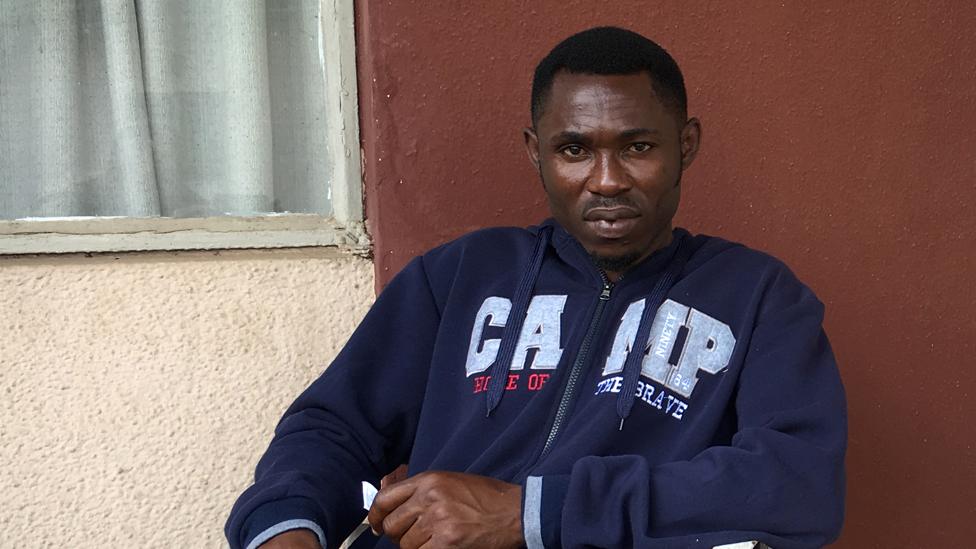
More than 3,000 Nigerian migrants who failed to reach Europe, have been flown home by the International Organization for Migration. Many sold everything to make the trip and aren't sure how to face their families.
Read: 'I sold all I had to go to Europe - now I'm home, and broke'
Join the conversation - find us on Facebook, external, Instagram, external, YouTube, external and Twitter, external.
